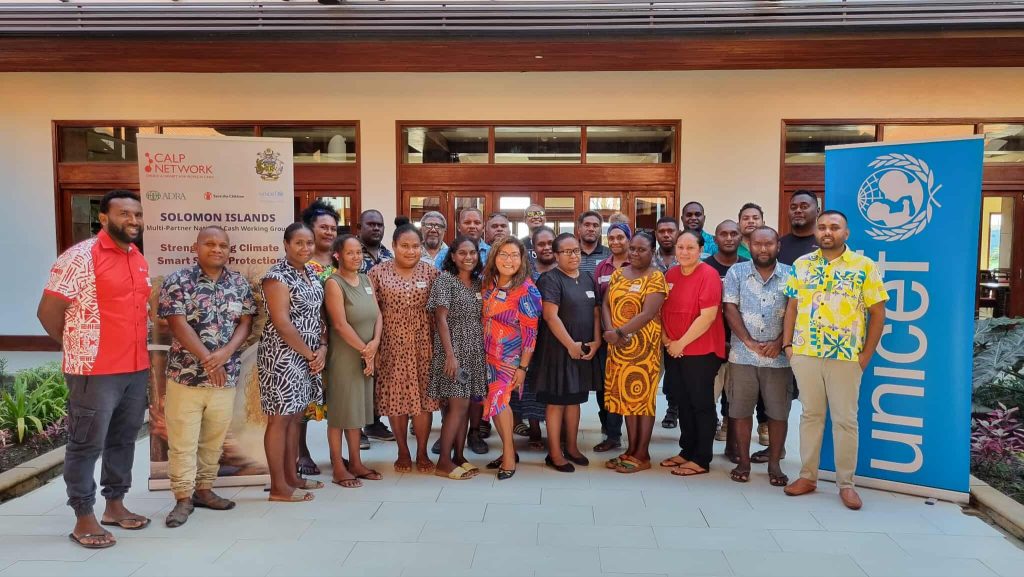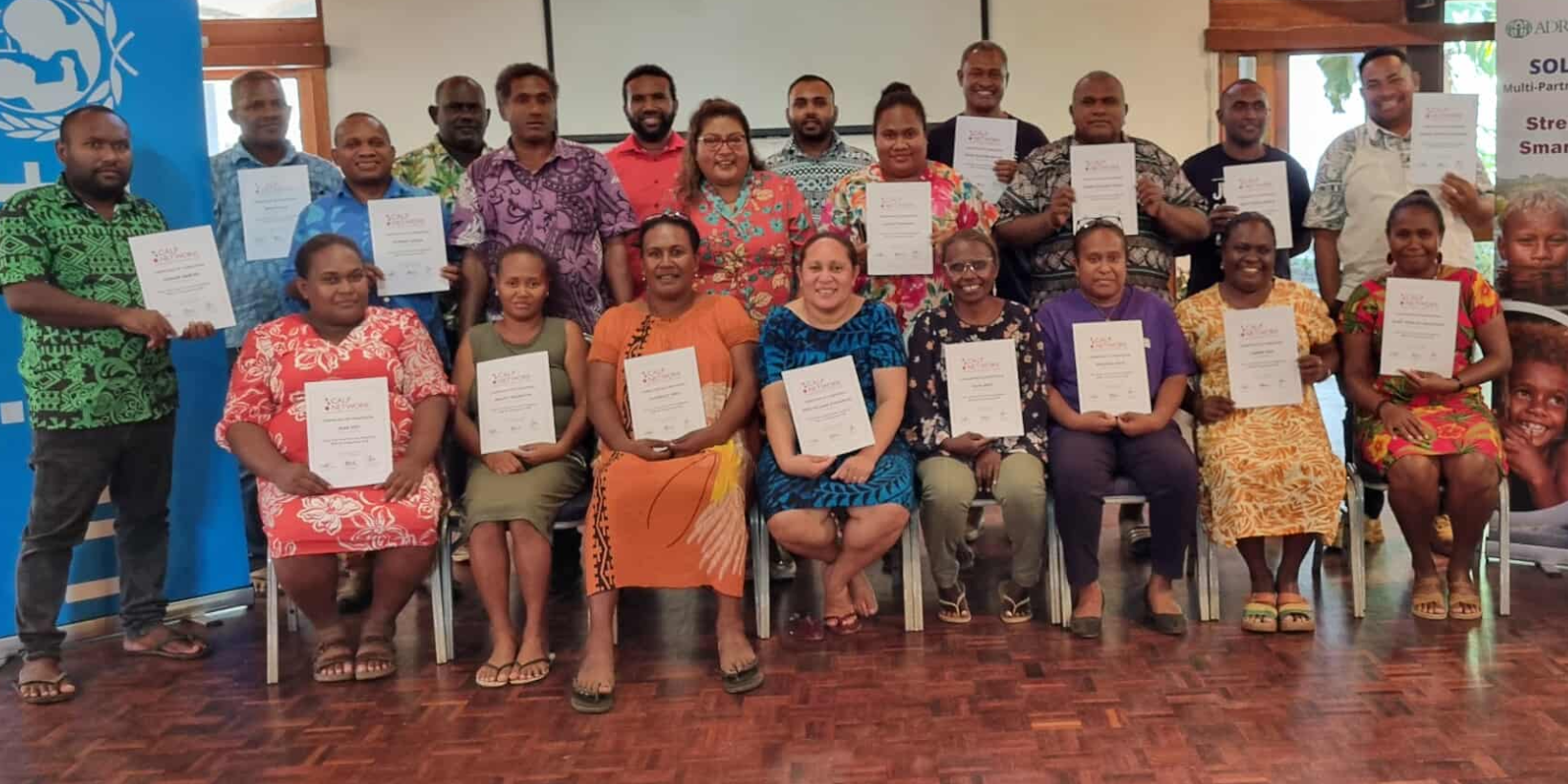A weeklong Cash and Voucher Assistance (CVA) workshop has successfully held in Honiara last week.
Cash and Voucher Assistance (CVA) is a type of change for modality of humanitarian aid where cash or vouchers are given to people affected by crises.
Unlike material assistance, such as food or blankets, it allows people to buy goods and services for themselves, based on their own needs and preferences.
Aimed and objective of the CVA workshop was to develop the knowledge, skills and confidence of humanitarian practitioners for cash and voucher assistance (CVA) technical design and quality.
The CVA training was held at Mendana Hotel from 11 August to 15 August 2025.
It was attended by 23 participants representing the Ministry of Women, Youth, Children, Family Affairs(MWYCFA), Ministry of Health and Medical Services(MHMS), Ministry of Education and Human Resources Development(MEHRD), Ministry of Home Affairs, Guadalcanal Provincial Government, Seif Ples, Christian Care Centre(CCC), NDMO, ADRA Solomon Island and Save the Children.
The workshop was funded by UNICEF and facilitated by Lead CaLP facilitator Ana Alburqueque of ADRA South Pacific, Co facilitators Ronesh Prasad of UNICEF and Kalua Salerua of Save the Children Vanuatu.
Lead CaLP facilitator Ana Alburqueque of ADRA South Pacific said, that the workshop was important for the participants because it strengthened their capacity to design and implement quality Cash and Voucher Assistance (CVA) interventions.

“By engaging in practical exercises and discussions, participants not only gained technical knowledge but also developed the confidence to apply CVA tools and approaches in their own contexts.
“This is critical for ensuring that humanitarian responses are more efficient, accountable, and tailored to the needs of affected communities.
“The workshop also created a valuable space for peer learning and sharing experiences, which further enhanced their understanding and ability to deliver high-standard CVA programs,’’ Alburqueque.
Director of Family Affairs in the Ministry of Women Youth Children and Family Affairs (MWYCF) Jackson Tasa spoke on behalf of the participants during the closing ceremony.
He acknowledged major sponsors and organising team to make sure everyone was part of CVA training here in the Solomon Islands.
“I would like to thank the three-facilitator job well done, the commitment and dedication put forward over the internship five days.
“There were a lot of learning, unlearning, and relearning of ideas, concept and process as far as CVA is concerned.
“Though it was new to many of us in the room, but it was worth it because we can use CVA as an effective tool for cash distribution.
“The rich insight about how it was used and done in many countries across the region will help us understand and learn how it can be done in our context.
“It will have challenges, but we can make a difference using it in our country before, during and after disaster,” Director Tasa said.
Donnie Saelea Deputy Director of Children Development Division in the Ministry of Women, Youth, Children and Family Affairs (MWYCF) also stated that CVA can be a more effective, dignified, and flexible way for deliver aid especially during times of disasters compared to traditional in-kind assistance.
“Also, when it comes in context of Gender, one key takeaway is the importance of designing CVA programs that challenge social and cultural norms and empower women and girls that ensure women’s participation in decision-making and distribution processes”
“Also, when it comes in the vulnerable groups in our country, i saw it that a major point would be the need for tailored CVA to the specific needs of children and other vulnerable groups, for ensure that the assistance leads to better outcomes for them,” he said.
ADRA Officer, Duran Taupongi shared that CVA is a multilateral tool that any sector can use in peace time or during emergency situations.
“it’s important to learn its usage and function now before any disaster happens. it’s a costless medium where it’s more effective in our context where logistics are difficult.
“But more assessment to be done to ensure real assistance directly impacting the lives of those in need in our context due to delivery mechanisms,” Mr Taupongi said.
Mary Newlyn Onahikeni, Senior Education Officer of the Education Provider Support Division in the Ministry of Education and Human Resources Development (MEHRD) said, that CVA is vital for disaster prone provinces and important for partnership and stakeholder coordination between government ministries and Key NGOs.
“Clear communication and training to relevant focal officers from respective organizations needed for future engagement. CVA should be the standard delivery mode to be implemented with sign MOU with key partners member ministries, ’she said.
Meanwhile, similar CVA training will conduct again in the future in Honiara through the Cash Working Group in Solomon Islands.
– ADRA









